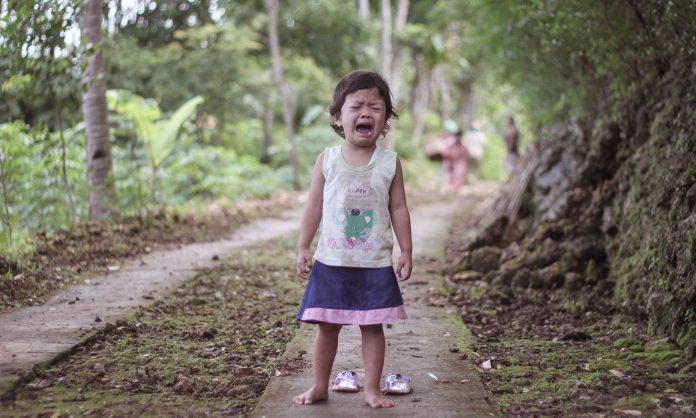All of us are bound to experience at least one type of natural disaster — whether it’s a long power outage from a typhoon, flooding, earthquake, or even a volcanic eruption.
Our family lives a few kilometers away from the Taal Volcano, but even if we’re not as badly affected as other families, I couldn’t help but sympathize with the moms and their kids whose lives are largely impacted by the catastrophe. Events such as these are stressful and traumatic even for us adults, more so for our kids.
As parents, we do tend to shield our kids from anxiety and trauma as much as possible. But in times of such disasters when our kids are also severely impacted no matter our best efforts, how can we help them cope? What can we do to help them recover and cope with the situation? Here are a few things that might help:
Plan.
Planning even before a natural disaster occurs can help kids cope in case of an actual disaster. A discussion about your family’s disaster plan can give your kids an idea of the possible events or calamities that your community is at risk for — such as flooding, typhoons, or even earthquakes. Aside from informing them of possible risks in your area, a disaster plan would also let them know what to expect and if possible, act quickly if the need arises as well — which can possibly help them cope better compared to if they’re entirely ignorant about the situation. Check out our tips here if you need help in coming up with your own family disaster plan.
Make it fun.
Make light of the situation as much as possible. If your family is stuck at home with no power because of a typhoon, you can bust out your board games and other indoor activity sets for a fun sleepover. This might be hard to do if your family was forced to evacuate from your home, but including a small toy in your family’s go bag can somehow comfort him in such a situation.
Keep them close.
Always, always keep your kids physically close to you in times of natural disasters. Kids tend to feel insecure and even scared if they get separated from loved ones — so try to hug them and keep them as close as possible as the natural disaster occurs and even after.
At the same time, try to resume your normal routine as much as possible after the disaster. Once school opens, let them attend class especially if they feel up to it, return to normal bedtimes, and even connect with family friends. Also, keep a close eye on them as they might be extra clingy and might need extra care or reassurance — and provide it to them if you can.
Explain the situation to your kids.
This will also depend on their ages, but it will be helpful to explain the situation to your kids — both during and after the natural disaster. Explain facts to them in the simplest way possible so they can better understand your situation and plan accordingly based on the family disaster plan you’ve created.
Also, let them freely express their thoughts and feelings over your situation as their feelings are just as valid as yours. Doing so can help them cope and heal over the experience.
Give them control.
Times of disasters can leave us feeling helpless over our situation, more so our kids. Try to alleviate their feeling of helplessness by letting them decide over simple things throughout the day — such as your activity, picking what to eat (given the choices), or even what game to play next. Giving them a bit of control can add to their feeling of security.
Allow them to help out.
Every disaster has a recovery process and getting your kids to help out in these efforts (in age-appropriate ways) can help them heal as well. This can come in the form of letting them help dispose of destroyed belongings after, as doing so can afford them a sense of closure. If your family was not as affected by the disaster, you and your kids can volunteer in relief efforts — doing so can teach compassion and empathy, and increase gratitude in your kids.
Be patient with your kids.
Natural disasters can have adverse effects on kids, such as regression (go back to younger behaviors such as bedwetting, thumb sucking, or separation anxiety) or even negative behaviors (such as aggression or depression among others). Be conscious of this and try to be more patient. Spend more time with them and reassure them that you are all safe and well.
Seek help.
If your kids’ regressive or negative behaviors persist months after the disaster, then it might be wise to seek professional help. Getting the right support and guidance can help in ensuring your family’s mental health recovery.
Enduring and coping with the effects of natural disasters can be a long, expensive, and difficult journey. But always remember that you and your family are not alone in the healing process — you can rely on other family members and even your community to sustain your healing and recovery.
Join our MomCenter Community on our Facebook page and Facebook group for more insights on motherhood and parenting.





